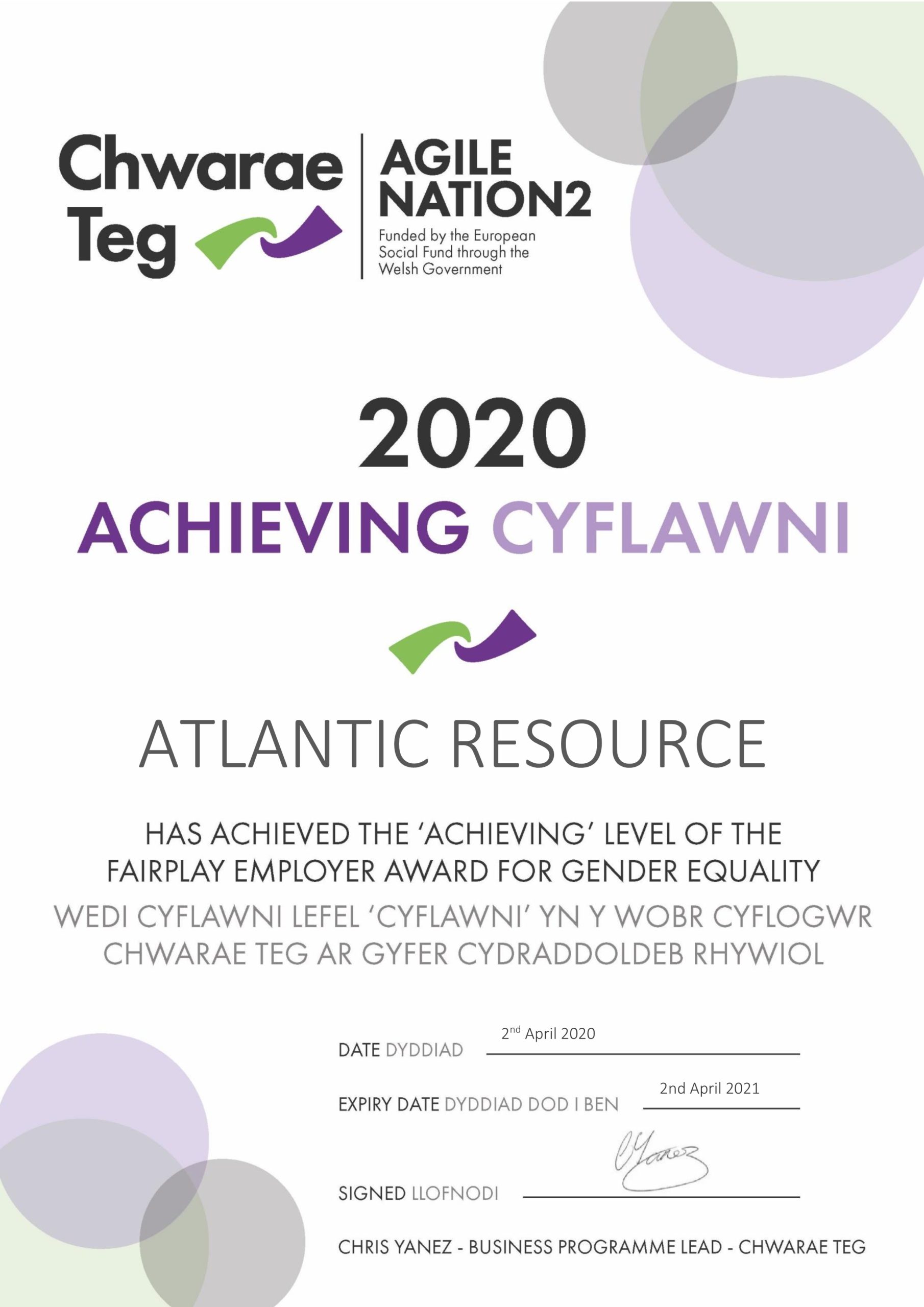It’s that time of year again. Thousands of new graduates and many people in Cardiff and right across the UK will be facing up to the realities of employment, work, jobs, money.While an organised fraction of these people will have positions or placements lined up, for others it can be a nervous, anxious time full of applications, interviews and waiting and seeing what comes along. But never fear. Cardiff is a well-sized and constantly growing city with a wealth of different opportunities across different sectors and industries.Here are seven morsels of job hunting advice from Atlantic Resource. 1. Use your existing contactsWith any luck you’ll have had your eye on work for some time before finishing your education. In that time you should have started developing a small network of people, through work experiences or industry placements. Use these contacts. They can help to win you more relevant contacts and point you in the right direction.Think about everyone you’ve come across and worked with in the last few years, even if you thought that you personally didn’t gain much from an experience. Perhaps your peers a year or two above you who’ve taken a path you’d like to try and emulate. Reach out to them and update them about where you’re at, and where you want to go. Be direct and politely ask them if they can help in any way, or offer any advice.2. Use online resources to find ‘real world’ eventsYou know the internet is your best friend, so use it wisely. Search for relevant local businesses, online groups and networking events. Get the Eventbrite app on your phone, regularly check meetup.com and sign-up to the email alerts. Then bite the bullet and bravely attend one or two events. If you back yourself and take the plunge, you’ll learn from the experience and your networking confidence will quickly grow.3. Rethink your work history Think about everything you’ve ever done before and the skills it’s given you, even if you hated doing it at the time. You may have smiled and nodded all day at customers, grating your teeth, but you still learned from it – a demonstration of discipline and resilience.Plot out every piece of work experience, however short-lived, paid or unpaid, and put it down on a page. Try and pull out the positives, the skills you developed or competencies you improved. Do this in a smart, structured way, try writing around it, then it can be used as the foundation for personal statements and job applications.4. Revise your non-work history for work-related skillsIn a similar vein, consider life outside of work: major experiences like travelling, caring or being part of a team. Think about how that could be applied to work – what parts of your character it reflects, how a certain experience allowed you to exhibit a strength, and what you enjoyed about it. Employers usually want to see individuality and personality. Using experiences you’re passionate about, and which helped you to develop, could be a prime opportunity to show that.
1. Use your existing contactsWith any luck you’ll have had your eye on work for some time before finishing your education. In that time you should have started developing a small network of people, through work experiences or industry placements. Use these contacts. They can help to win you more relevant contacts and point you in the right direction.Think about everyone you’ve come across and worked with in the last few years, even if you thought that you personally didn’t gain much from an experience. Perhaps your peers a year or two above you who’ve taken a path you’d like to try and emulate. Reach out to them and update them about where you’re at, and where you want to go. Be direct and politely ask them if they can help in any way, or offer any advice.2. Use online resources to find ‘real world’ eventsYou know the internet is your best friend, so use it wisely. Search for relevant local businesses, online groups and networking events. Get the Eventbrite app on your phone, regularly check meetup.com and sign-up to the email alerts. Then bite the bullet and bravely attend one or two events. If you back yourself and take the plunge, you’ll learn from the experience and your networking confidence will quickly grow.3. Rethink your work history Think about everything you’ve ever done before and the skills it’s given you, even if you hated doing it at the time. You may have smiled and nodded all day at customers, grating your teeth, but you still learned from it – a demonstration of discipline and resilience.Plot out every piece of work experience, however short-lived, paid or unpaid, and put it down on a page. Try and pull out the positives, the skills you developed or competencies you improved. Do this in a smart, structured way, try writing around it, then it can be used as the foundation for personal statements and job applications.4. Revise your non-work history for work-related skillsIn a similar vein, consider life outside of work: major experiences like travelling, caring or being part of a team. Think about how that could be applied to work – what parts of your character it reflects, how a certain experience allowed you to exhibit a strength, and what you enjoyed about it. Employers usually want to see individuality and personality. Using experiences you’re passionate about, and which helped you to develop, could be a prime opportunity to show that.

Keeping in touch with your classmates can help to grow your network
What are you into? What industries? What sorts of jobs? Of course you’ve thought about this before now, but here’s your chance to think some more and do some serious research. Find companies you like the look of and think about why you like the look of them. Thoroughly read their websites and learn about how the company has grown and developed from its early days. Try to retain a few pieces of information. Find out what other people are saying about them online and in the press, check their social media activity.Even if they’re not advertising vacancies, get in touch and ask if you can a CV for their reference. Make it polished and focused. Gently flatter their business in a covering email or letter, using some of the research.
6. Don’t put all your eggs in one basketThere might be a selection of companies that you love and would do almost anything to work for. But the chances are, the same can be said for many other people. As competition is so fierce, it might help to be relaxed about entertaining a range of industries. Graduates and college-leavers are accepted into a whole range of businesses and organisations. And once you’re in and doing a fantastic job, your chances of internal progression and promotion are excellent.7.
Check your online profilesOnline profiles are dangerously easy to search and find, so beware of your settings and what information and images you have freely accessible by the world. Potential employers or recruiters can easily search, find something, make a hasty judgement and cast you aside. Don’t give them any reason to do that.If you haven’t started much of a professional presence online, take a
look at our blog post. LinkedIn is a must for professional networking, reminding peers you’re around, and what you’re working on. The groups feature is also powerful and well worth exploring.*The harsh, often uncomfortable truth is that you’ll probably end up compromising on a role that isn’t exactly your dream job – whether you’re in a larger Welsh city like Cardiff or Swansea, or if you’re back with your folks in a smaller town. But it’ll do for now because you need money.This is the case for thousands of school, college or university-leavers across the UK. It has been for years and probably will be for many more. The necessity of having to earn money can persuade people to compromise. On the other hand, you might not know what your dream job is, or even why you just spent the last three years working hard to achieve a certain degree. An unexpected, unpredicted job can give you great experience in honing new skills. And people can work gradually towards a dream job, taking a complicated route to get there.Careers and working lives are more complicated than ever before, especially in an era where plenty of people work several different jobs at the same time. These things can take time and working lives are long, so you’ll probably figure it out in the end.At an early stage of working life, the exact workplace where you end up can seem random, down to basic pot luck. People often talk about ‘falling into’ a first real job. However, by following the common-sense guidelines above, you’ll give the best possible representation of yourself. In the process, it might give you a clearer idea of where you’re at and where you want to go.
If you’re seeking temporary or permanent work in office admin, catering, construction or healthcare, get in touch with us at Atlantic Resource.
 1. Use your existing contactsWith any luck you’ll have had your eye on work for some time before finishing your education. In that time you should have started developing a small network of people, through work experiences or industry placements. Use these contacts. They can help to win you more relevant contacts and point you in the right direction.Think about everyone you’ve come across and worked with in the last few years, even if you thought that you personally didn’t gain much from an experience. Perhaps your peers a year or two above you who’ve taken a path you’d like to try and emulate. Reach out to them and update them about where you’re at, and where you want to go. Be direct and politely ask them if they can help in any way, or offer any advice.2. Use online resources to find ‘real world’ eventsYou know the internet is your best friend, so use it wisely. Search for relevant local businesses, online groups and networking events. Get the Eventbrite app on your phone, regularly check meetup.com and sign-up to the email alerts. Then bite the bullet and bravely attend one or two events. If you back yourself and take the plunge, you’ll learn from the experience and your networking confidence will quickly grow.3. Rethink your work history Think about everything you’ve ever done before and the skills it’s given you, even if you hated doing it at the time. You may have smiled and nodded all day at customers, grating your teeth, but you still learned from it – a demonstration of discipline and resilience.Plot out every piece of work experience, however short-lived, paid or unpaid, and put it down on a page. Try and pull out the positives, the skills you developed or competencies you improved. Do this in a smart, structured way, try writing around it, then it can be used as the foundation for personal statements and job applications.4. Revise your non-work history for work-related skillsIn a similar vein, consider life outside of work: major experiences like travelling, caring or being part of a team. Think about how that could be applied to work – what parts of your character it reflects, how a certain experience allowed you to exhibit a strength, and what you enjoyed about it. Employers usually want to see individuality and personality. Using experiences you’re passionate about, and which helped you to develop, could be a prime opportunity to show that.
1. Use your existing contactsWith any luck you’ll have had your eye on work for some time before finishing your education. In that time you should have started developing a small network of people, through work experiences or industry placements. Use these contacts. They can help to win you more relevant contacts and point you in the right direction.Think about everyone you’ve come across and worked with in the last few years, even if you thought that you personally didn’t gain much from an experience. Perhaps your peers a year or two above you who’ve taken a path you’d like to try and emulate. Reach out to them and update them about where you’re at, and where you want to go. Be direct and politely ask them if they can help in any way, or offer any advice.2. Use online resources to find ‘real world’ eventsYou know the internet is your best friend, so use it wisely. Search for relevant local businesses, online groups and networking events. Get the Eventbrite app on your phone, regularly check meetup.com and sign-up to the email alerts. Then bite the bullet and bravely attend one or two events. If you back yourself and take the plunge, you’ll learn from the experience and your networking confidence will quickly grow.3. Rethink your work history Think about everything you’ve ever done before and the skills it’s given you, even if you hated doing it at the time. You may have smiled and nodded all day at customers, grating your teeth, but you still learned from it – a demonstration of discipline and resilience.Plot out every piece of work experience, however short-lived, paid or unpaid, and put it down on a page. Try and pull out the positives, the skills you developed or competencies you improved. Do this in a smart, structured way, try writing around it, then it can be used as the foundation for personal statements and job applications.4. Revise your non-work history for work-related skillsIn a similar vein, consider life outside of work: major experiences like travelling, caring or being part of a team. Think about how that could be applied to work – what parts of your character it reflects, how a certain experience allowed you to exhibit a strength, and what you enjoyed about it. Employers usually want to see individuality and personality. Using experiences you’re passionate about, and which helped you to develop, could be a prime opportunity to show that.







